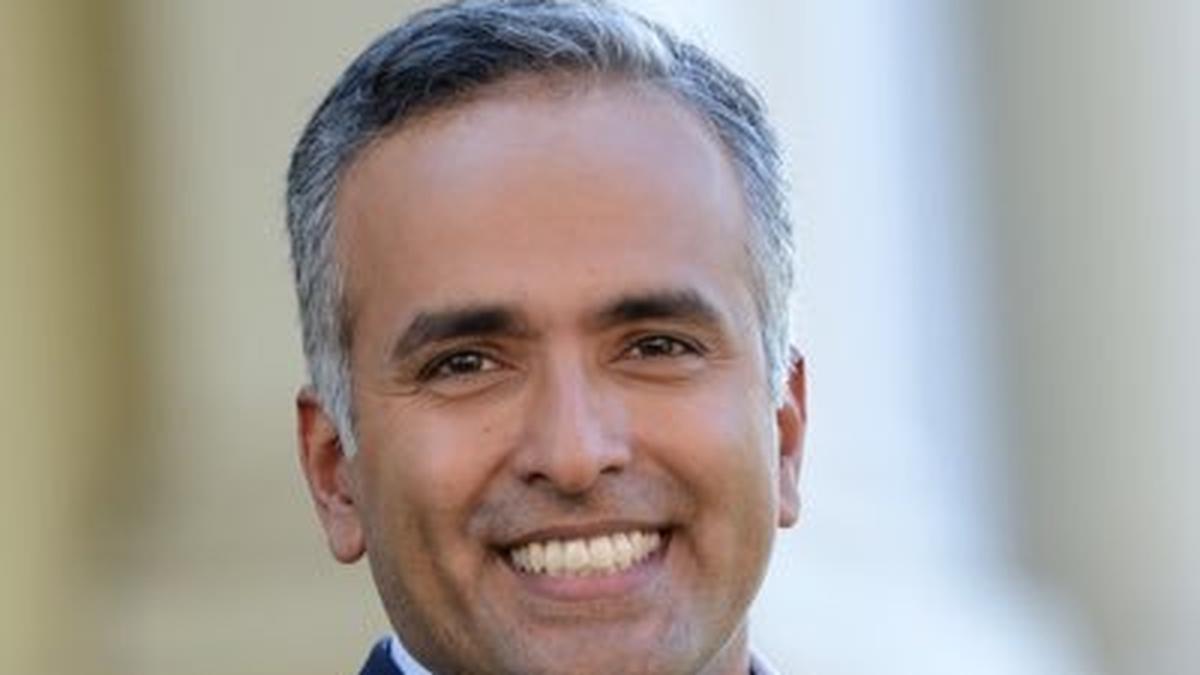Breaking News
How Kamala Harris positions herself on immigration, abortion, economy will impact her traction among Indian Americans

Karthick Ramakrishnan, the founder and executive director of AAPI Data, an organization that researches the political views of Asian American communities in the U.S., recently spoke to The Hindu about Kamala Harris’s presidential campaign. In the interview, he discusses Harris’s potential success, particularly among Indian Americans, as well as the impact of another Indian American figure, Usha Vance, wife of Republican vice-presidential candidate J.D. Vance.
The conversation also touched upon the decline in support for Joe Biden among Asian Americans in the 2024 Asian American Survey. Ramakrishnan noted that while there was an 8% drop in support for Biden overall, Indian Americans experienced a more significant 19% decline. Despite this drop in support for Biden, Donald Trump did not see a significant increase in support. Ramakrishnan interpreted this as dissatisfaction among voters with their choices between Biden and Trump, leading many to consider other candidates or remain undecided.
Ramakrishnan also discussed Harris’s previous performance in the 2019 presidential race, noting that she struggled to gain traction outside of California due to other prominent candidates dominating the headlines. However, once she was chosen as the vice-presidential nominee, there was a surge in interest among Asian Americans, including Indian Americans.
Regarding the impact of Harris’s candidacy on Indian Americans who may have previously supported Trump, Ramakrishnan emphasized that Harris’s entry into the race introduced new dynamics that could shift political allegiances. He noted that while Harris’s favorability among Indian Americans was on par with Biden’s, she outperformed Trump, Nikki Haley, and Vivek Ramaswamy. Ramakrishnan highlighted the importance of ethnic pride in influencing voting decisions, noting that party allegiance often outweighs shared ethnicity when it comes to voting.
Looking ahead, Ramakrishnan suggested that Harris could focus on progressive issues like abortion rights, climate change, and gun control, where Indian Americans and Asian Americans are strong supporters. He also highlighted immigration as a key issue where Harris could differentiate herself from the Trump administration by emphasizing family visas and addressing long wait times for visas. Overall, Ramakrishnan expressed optimism about Harris’s ability to connect with Indian American voters and potentially reshape their political preferences.
These issues could potentially disrupt the calculations of the Trump campaign and Indian American voters as well.
How can Republicans attract Indian American and Asian American votes with their strict immigration stance?
The Republican Party faces a challenge due to its hardline immigration positions, especially under Trump. Despite potential credit for economic and foreign policy stances, two major issues hinder Indian Americans from supporting the party. The rise of Christian conservatism and nationalism alienates the predominantly Hindu and religiously diverse Indian American community. Additionally, immigration policies affect Indian Americans, the largest group of Asian undocumented immigrants, creating complexities and uncertainties that may sway opinions.
Managing conflicting views within the party, particularly on legal immigration, poses difficulties for Trump. Opposition from key conservative figures like Stephen Miller and Steven Bannon further complicates potential shifts in immigration policies.
How loyal are U.S. voters to political parties?
Existing party loyalty among Indian American voters, who have consistently voted for the same party, makes significant shifts unlikely. However, new voters, including naturalized citizens and young voters, may be more open to persuasion. Habits and attitudes developed through repeated party affiliations play a crucial role in shaping voting decisions.
Independents and new voters present opportunities for persuasion, especially considering the changing demographics and political landscape.
The potential impact of Usha Vance, the Indian-American spouse of the Republican Vice Presidential candidate, on Indian American votes.
Indian Americans, despite being recent immigrants, have achieved notable political representation compared to other immigrant groups. Factors like democracy background and English proficiency contribute to their political engagement. Usha Vance’s background as an elite professional and her non-political history raise questions about her influence on Indian American voters.
While Usha Vance may humanize her husband and soften Republican policies on issues like immigration and abortion, the impact of vice presidential spouses on voter decisions is limited. The focus typically remains on the presidential candidates, with marginal effects from vice presidential candidates’ spouses.
-

 Destination9 months ago
Destination9 months agoSingapore Airlines CEO set to join board of Air India, BA News, BA
-

 Breaking News10 months ago
Breaking News10 months agoCroatia to reintroduce compulsory military draft as regional tensions soar
-

 Gadgets4 months ago
Gadgets4 months agoSupernatural Season 16 Revival News, Cast, Plot and Release Date
-

 Tech News1 year ago
Tech News1 year agoBangladeshi police agents accused of selling citizens’ personal information on Telegram
-

 Productivity12 months ago
Productivity12 months agoHow Your Contact Center Can Become A Customer Engagement Center
-

 Gadgets4 weeks ago
Gadgets4 weeks agoFallout Season 2 Potential Release Date, Cast, Plot and News
-

 Breaking News10 months ago
Breaking News10 months agoBangladesh crisis: Refaat Ahmed sworn in as Bangladesh’s new chief justice
-

 Toys12 months ago
Toys12 months ago15 of the Best Trike & Tricycles Mums Recommend






















